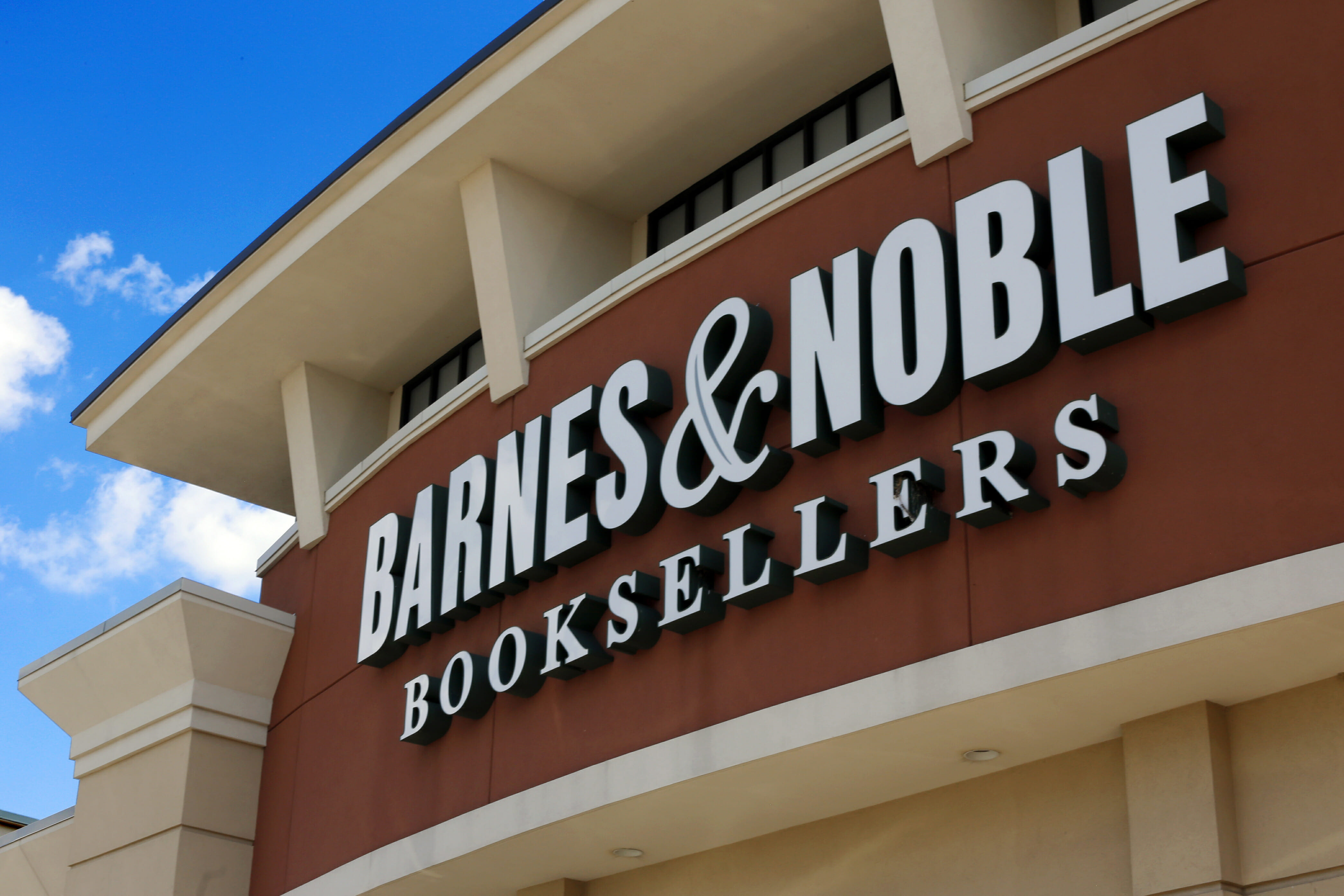
Once a book selling giant, Barnes & Noble sold to hedge fund
Barnes & Noble is being acquired by a hedge fund for $476 million and will be taken private.
The national chain that many blamed for the demise of independent bookstores has been ravaged by Amazon.com and other online sellers, but remains a critical outlet for publishers.
On Friday, it was acquired by Elliott Management and, in a twist, will likely become a national chain with a business model more akin to that of a local bookstore.
Elliott bought Waterstones one year ago, a national U.K. book chain that has successfully navigated through the online/e-reader revolution by returning a lot of autonomy to the managers of its nearly 300 stores, who can select books that they believe local readers want.
The man who runs that U.K. chain, who will become CEO of Barnes & Noble, said that is what he has in mind for Barnes & Noble.
Leonard Riggio acquired the century old Barnes & Noble in the 1970s, including its flagship Manhattan store, in the 1970s. He pursued aggressive expansion throughout the 1980s and established Barnes & Noble as a national phenomenon with the acquisition of B. Dalton Bookseller and its 797 locations in 1987. It became the nation’s second-largest bookseller and began selling books online in partnership with IBM and Sears.
The company continued to gobble up other larger booksellers like Doubleday Book Shops and also BookStop, which ran discount superstores in Texas.
By 1993, Barnes & Noble was a publicly traded company that was upending the publishing industry.
The company tried to ride the digital transformation of books, rolling out its own e-reader, the Nook, in 2009 and offering more than a million books on its website.
But Amazon.com, which began as an online market place for books, was relentless and its Kindle e-reader is dominant today. The company has cut into sales of both Barnes & Noble and independent book sellers alike.
Last year, Riggio was brought on stage by Oren Teicher for BookExpo 2018 in New York City.
Teicher heads the American Booksellers Association, the group representing independent book shops, and a bitter rival of Barnes & Noble.
“Today, we stand together in common cause to promote and support bricks-and-mortar bookstores,” said Teicher. “I’ve been quoted as saying that it’s in the long-term interest of the overall book business that Barnes & Noble not just survive but grow and prosper.”
But Barnes & Noble has suffered.
With about 630 retail stores in the U.S. as of last year, it is smaller than when it acquired of B. Dalton Bookseller in the late 1980s. Its revenue peaked in 2012, and it has fallen every year since.
To reverse that decline, new CEO James Daunt will try to replicate what Waterstones has done in Britain.
His main goal is to have each Barnes & Noble store be more tailored to the local market, rather than operate as a massive homogenous chain.
“In chain bookselling, you need to try and get the best store for each location,” Daunt told The Associated Press. “What works in Jacksonville, Florida, isn’t necessarily going to work in Hawaii.”
And he sees advantages for Barnes and Noble in the fight with Amazon, where the customer interaction is limited to buying things online.
Waterstones organizes multiple, simultaneous events at its stores, making them “a “fun place to discover books and enjoy the particularities of a bookstore.”
Elliott will pay $6.50 for each share of Barnes & Noble, an approximately 9% percent premium to the company’s Thursday closing stock price
The sale, valued at about $683 million including debt, is targeted to close in the third quarter if approved by regulators and shareholders.
After that remains a long road to recovery, if that’s even possible. Some industry watchers are skeptical, including Mike Shatzkin, the CEO of Idea Logical Company, a book-industry consulting company.
He called the entire large-store model for any retail chain “a 20th century concept” extinguished by the internet.
“It doesn’t surprise me that Barnes and Noble’s management never came to that conclusion because they built their fortune building bigger stores,” he said. “And I’m not sure Waterstone’s is going to lead them to a different approach.”
However, retailers like Target and Walmart have done so successfully, in part by using their brick and mortar stores as launching points for fast delivery for things bought online.
The Western Journal has not reviewed this Associated Press story prior to publication. Therefore, it may contain editorial bias or may in some other way not meet our normal editorial standards. It is provided to our readers as a service from The Western Journal.
Truth and Accuracy
We are committed to truth and accuracy in all of our journalism. Read our editorial standards.
Advertise with The Western Journal and reach millions of highly engaged readers, while supporting our work. Advertise Today.












